Wall Drill
There are certain things all good hitters do during their swing that make them consistent and successful.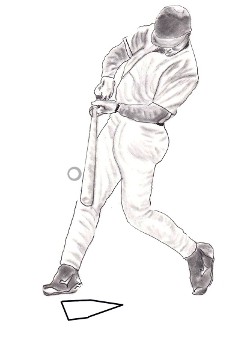
The barrel of the bat stays below your hands until contact.
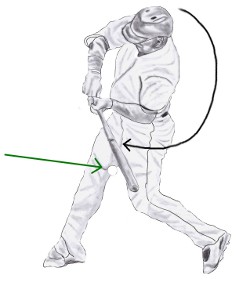
The swing is slightly up through the ball and your hands are inside the flight of the pitch. This puts your bat on the same plane as the pitch, which gives you a much longer area to make contact.
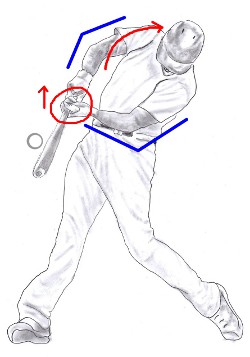
Arms are bent at contact. The front shoulder is pulled up and back. Your top hand is palm up.
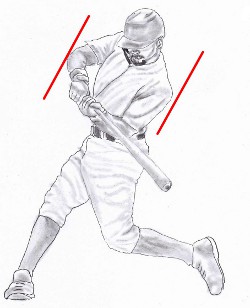
Don’t drift forward as you stride or swing. Your body tilts back toward the catcher.
Here’s a drill I found that will help you incorporate these things into your swing.
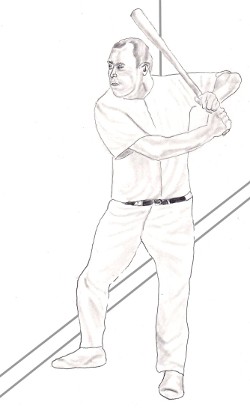
Stand close to a wall or fence. I practice this drill in front of my garage door.
Get into your stance and open your front foot so that your toe is facing and touching the wall.
Slowly take a swing. The wall represents where contact is made.
The goal here is to complete your slow motion swing to contact without touching your front elbow or the knob of your bat against the wall.
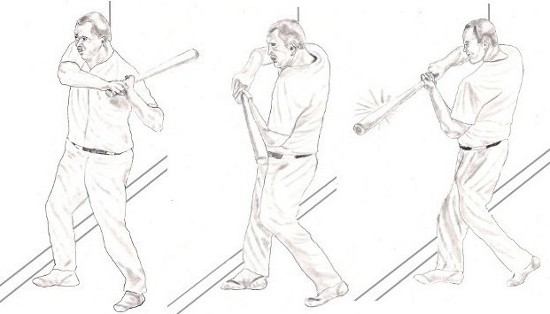
Now, slowly swing to contact. Tilt back toward the catcher as you swing. If you let your weight go forward, your elbow or bat knob will hit the wall.
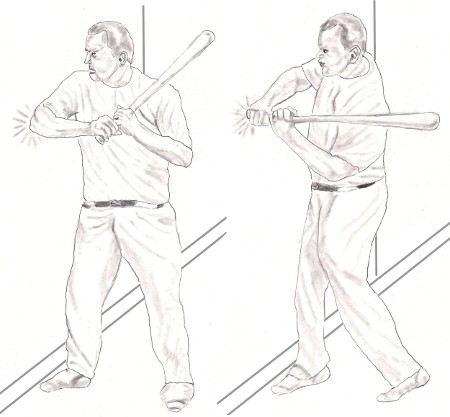
Don't let your elbow or the knob of the bat touch the wall.
This drill will also force you to keep your hands inside the flight of the ball and will make you keep your arms bent at contact. Arms extend after contact.
If you let your hands get disconnected, out away, from your body, your elbow will hit the wall.
Keep the barrel of your bat below your hands as you swing. Even on high pitches.

Practice swinging at imaginary high, medium and low pitches. The only difference will be how much you tilt your body toward the plate and how much your barrel angles down.
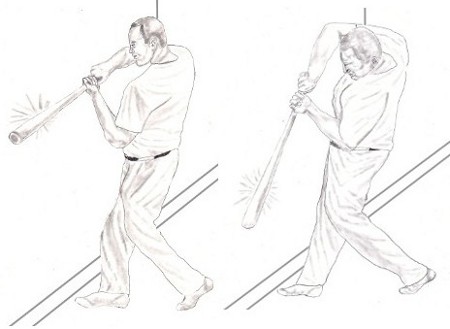
High Pitch Low Pitch
As your rotate your swing, your arms and chest form a triangle.
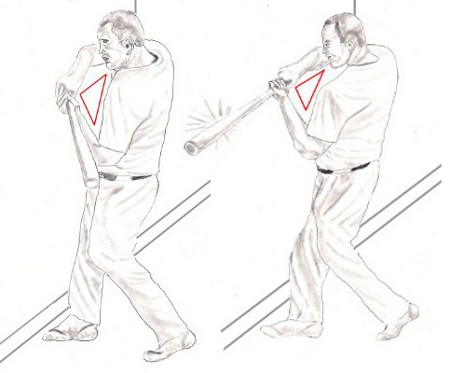
Keep this triangle constant until you make contact with the wall. Even on low pitches.
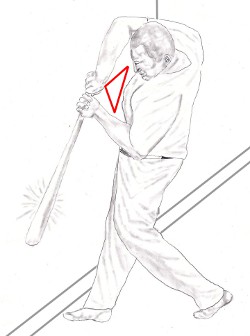
Just turn the triangle as you swing.
I like this drill because you can do it by yourself. All you need is a wall and a bat.
And you can do unlimited repetitions. Remember, you are not taking a full swing here. Do it in slow motion.
This will also put your bat on the same plane as the pitch. Keeping your bat on this plane as long as possible will give you a much longer area to make contact.
Here are a few examples of turning the triangle as you swing.
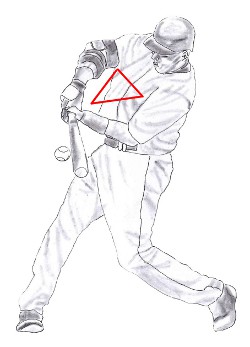 Barry Bonds
Barry Bonds
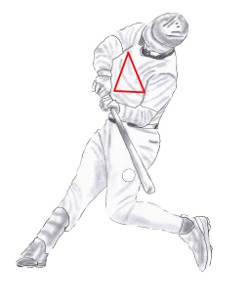 Bryce Harper
Bryce Harper
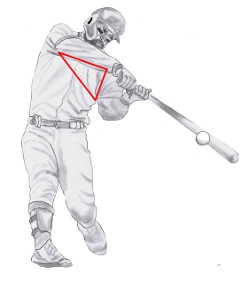 Bryce Harper Again
Bryce Harper Again
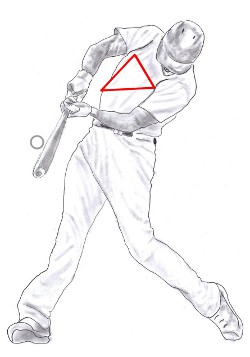 Freddie Freeman
Freddie Freeman
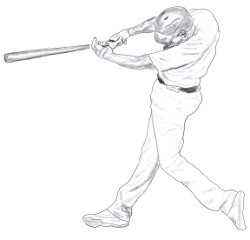
Arms extend AFTER CONTACT
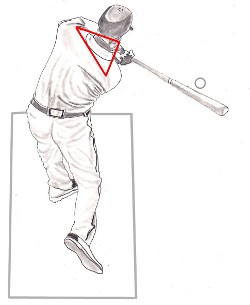 Chipper Jones
Chipper Jones
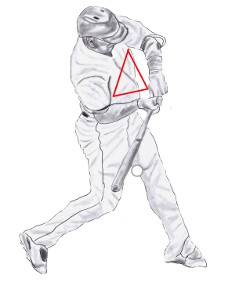 Mike Trout
Mike Trout
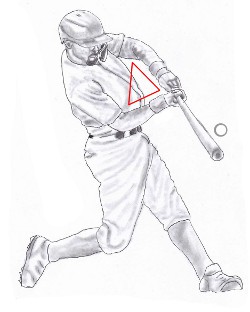 Mookie Betts
Mookie Betts
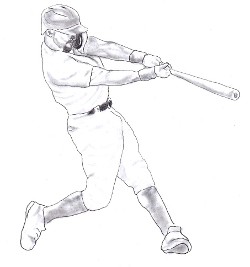 Extension After Contact
Extension After Contact
Also, notice how all these great hitters are tilting back toward the catcher at contact.
All Rights Reserved.